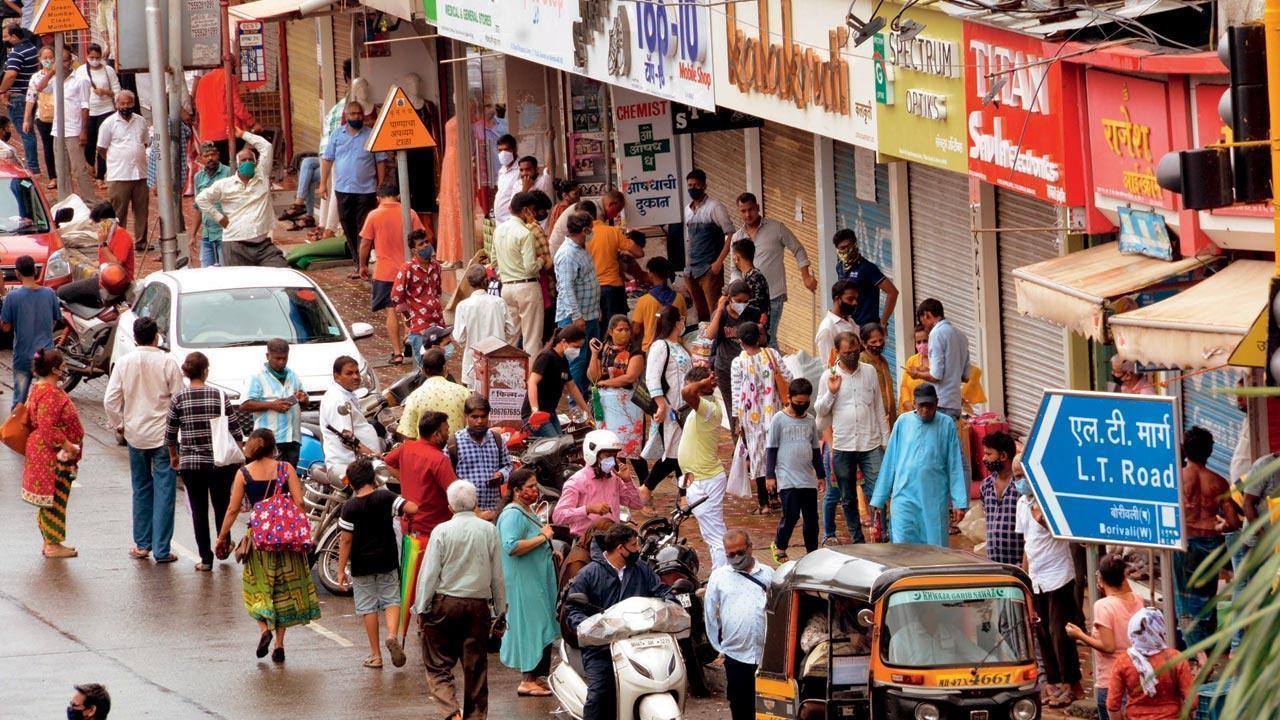India is currently seeing a dip in cases at the end of the second wave and that may be because Covid-19 is likely in the endemic stage in the country, according to WHO chief scientist Dr Soumya Swaminathan. City-based pulmonologist Dr Lancelot Pinto explains the meaning of the endemic stage and what India should do during this time

Dr Lancelot Pinto explains that the endemic stage is a smouldering phase which does not cause the overwhelming of the healthcare system. Photo: File pic/Satej Shinde
In a recent interview, World Health Organization chief scientist Dr Soumya Swaminathan said India may be entering the endemic stage of Covid-19. Her statement came more than one year and a half after the world first experienced the coronavirus outbreak, which has taken about 4.5 million lives since then.
ADVERTISEMENT
India is currently experiencing a dip in cases, compared with the start of the second wave earlier this year. However, while vaccinations are underway, the threat of the virus and its variants still looms large with the possibility of a third wave later on. According to Dr Swaminathan’s observation in her interview with The Wire, the virus is here to stay and its presence is going to be felt through “a few local ups and downs” but it will not be as severe as at the start of the second wave.
Mid-day online reached out to Dr Lancelot Pinto, consultant pulmonologist at PD Hinduja Hospital & Medical Research Centre to understand how an endemic stage will be different from the pandemic. He explains what the presence of variants means in the endemic stage, offers clarity on the need for boosters, and shares how to avoid confusing Covid-19 with the common flu.
What would Covid-19 reaching an 'endemic stage' mean?
An endemic stage is a smouldering phase which does not cause the overwhelming of the healthcare system. COVID-19 reaching an endemic stage would mean that it is unlikely that we will experience a huge countrywide surge as the two we have experienced thus far, but at the same time, we won’t eradicate the virus completely. The virus will continue to circulate in the population, causing periodic outbreaks and limited localised surges, reflecting the local immunity and preventive practices of a geographic area.
What is the difference between a pandemic and an endemic?
A pandemic is an epidemic that crosses and spreads across national and/or continental boundaries. An epidemic is usually the presence of an infectious disease in which the number of cases show a surge, and exceeds what has been the background prevalence, or is caused by a novel infection. Endemic diseases can be reversed with a combination of preventive measures such as vaccination/masking/distancing/preventing overcrowding/ensuring good indoor ventilation, and arresting transmission (test, trace, treat and isolate).
What would India reaching an endemic stage mean for a city like Mumbai?
A combination of high vaccine coverage and high seroprevalence from prior infection will hopefully protect the citizens of Mumbai from a future large surge. However, this will need to be constantly revisited in the event of spread of new variants, and the possible waning of immunity with time.
Does the endemic stage include all the Covid-19 variants identified so far, and what is the possibility of newer variants becoming a cause for concern in the future?
As long as transmission continues and vaccination coverage is low, there is a possibility of newer variants evolving. These variants could be more infectious, more virulent, more adept at evading immunity from vaccines or from past infections, or have a combination of any of these attributes. It is therefore critical that vaccination coverage is stepped up worldwide. “No one is safe until everyone is safe” needs to be the worldwide motto.
Will getting vaccinated help curb the virus during the endemic stage?
Yes. With a higher vaccination coverage, even though transmission might continue, the rates of hospitalisation and death should be lower. It could result in a situation similar to the common cold, and not cause an overwhelming of the healthcare system.
Does the endemic stage influence the possibility or outcome of the third wave?
Not necessarily. It is immunity from vaccination and past infection that is likely to determine the possibility, along with preventive measures (vaccination/masking/distancing/preventing overcrowding/ensuring good indoor ventilation) and the ability to arrest transmission (test, trace, treat and isolate).
Will wearing masks at all times remain a necessity in the near future?
While that might be true, if vaccine coverage becomes nearly universal, and vaccines demonstrate long-term protection from moderate to severe disease, we might learn to accept the probability of SARS-CoV-2 infections as we used to accept the probability of a common cold or influenza in low-risk individuals. This might let us shed our masks. However, the possibility of this happening seems distant at present.
Does the possibility of being infected by a variant mean we will need regular boosters?
Science will give us the answer to this question. Presently, there is a hypothesis that mRNA vaccines need boosters at a shorter interval than virus vector vaccines. However, surveillance of the number of breakthrough infections and analysing whether they seem to increase with time since the second dose will determine whether this is true.
Will people need to continue going in for tests, instead of ignoring the Covid-19 symptoms to be that of the common flu?
RT-PCRs of nasopharyngeal swabs for SARS-CoV-2 are here to stay till we reach a point in which one can accurately predict the risk of moderate to severe disease to be extremely low. If and when that happens, we would then recommend testing for high-risk individuals, while treating others with symptomatic treatment, like we do for other viral infections.
Also Read: Why Malaria spikes during the monsoon; causes, symptoms, prevention
 Subscribe today by clicking the link and stay updated with the latest news!" Click here!
Subscribe today by clicking the link and stay updated with the latest news!" Click here!






